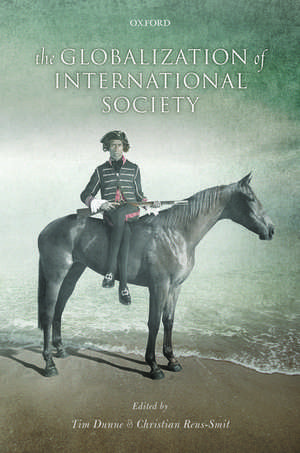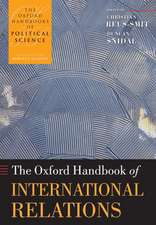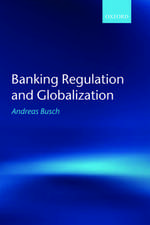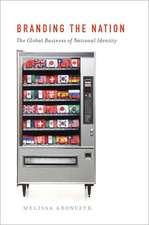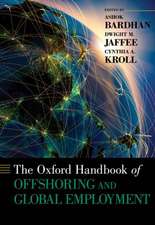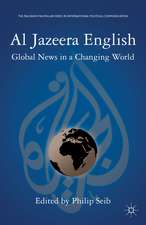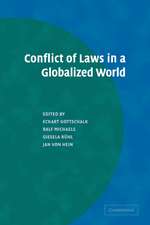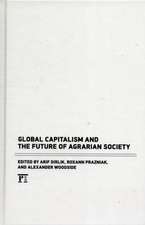The Globalization of International Society
Editat de Tim Dunne, Christian Reus-Smiten Limba Engleză Paperback – 19 ian 2017
| Toate formatele și edițiile | Preț | Express |
|---|---|---|
| Paperback (1) | 343.90 lei 31-37 zile | |
| OUP OXFORD – 19 ian 2017 | 343.90 lei 31-37 zile | |
| Hardback (1) | 824.58 lei 31-37 zile | |
| OUP OXFORD – 19 ian 2017 | 824.58 lei 31-37 zile |
Preț: 343.90 lei
Nou
Puncte Express: 516
Preț estimativ în valută:
65.81€ • 68.46$ • 54.33£
65.81€ • 68.46$ • 54.33£
Carte tipărită la comandă
Livrare economică 04-10 aprilie
Preluare comenzi: 021 569.72.76
Specificații
ISBN-13: 9780198793434
ISBN-10: 019879343X
Pagini: 520
Dimensiuni: 154 x 234 x 27 mm
Greutate: 0.76 kg
Editura: OUP OXFORD
Colecția OUP Oxford
Locul publicării:Oxford, United Kingdom
ISBN-10: 019879343X
Pagini: 520
Dimensiuni: 154 x 234 x 27 mm
Greutate: 0.76 kg
Editura: OUP OXFORD
Colecția OUP Oxford
Locul publicării:Oxford, United Kingdom
Recenzii
International historians and IR scholars do not always see eye to eye. In this agenda-setting collection of essays, Dunne and Reus-Smit have done an inspired job of bringing these separate disciplinary conversations into dialogue, with the global reframing of Hedley Bull and Adam Watson's seminal volume, The Expansion of International Society, as their point of contact. The result is a volume that recovers the intersecting pasts of globalisation and international society, and posits a richer genealogy for understanding the origins and nature and future of international society as an idea and a process. The Globalisation of International Society reminds us why the long history and politics of the relationships between states matters.
This book succeeds in the impossible. It is encyclopedic and coherent; deeply historicized and radically contemporary; highly critical of Bull and Watson's seminal contribution and deeply respectful. I hope it will become required reading in graduate seminars all over the world so that its ecumenical outlook can shape the views of the next generation of scholars.
A compelling volume that takes us far beyond the traditional Euro-American framing of IR. Invaluable for making sense of its major theoretical challenges, the book also captures the diversity and complexity of the rapidly changing discipline towards a Global IR.
This book is rich with empirical insights developed from its careful conceptual and theoretical correctives. In particular, these correctives enable fruitful revisiting of questions about the diverse sources and potential futures of international society.
This book succeeds in the impossible. It is encyclopedic and coherent; deeply historicized and radically contemporary; highly critical of Bull and Watson's seminal contribution and deeply respectful. I hope it will become required reading in graduate seminars all over the world so that its ecumenical outlook can shape the views of the next generation of scholars.
A compelling volume that takes us far beyond the traditional Euro-American framing of IR. Invaluable for making sense of its major theoretical challenges, the book also captures the diversity and complexity of the rapidly changing discipline towards a Global IR.
This book is rich with empirical insights developed from its careful conceptual and theoretical correctives. In particular, these correctives enable fruitful revisiting of questions about the diverse sources and potential futures of international society.
Notă biografică
Tim Dunne is Executive Dean of the Faculty of Humanities and Social Sciences at the University of Queensland where he is also Professor of International Relations in the School of Political Science and International Studies. Previously he was Director of the Asia Pacific Centre for the Responsibility to Protect, where he continues to be a Senior Researcher. He has written and edited twelve books, including Inventing International Society: A History of the English School (1998), Human Rights in Global Politics (co-edited with Nicholas J. Wheeler, 1999), Worlds in Collision (co-edited with Ken Booth, 2002), Terror in our Time (co-authored with Ken Booth, 2012), International Relations Theories (co-edited with Milja Kurki and Steve Smith, 2016), Liberal World Orders (co-edited with Trine Flockhart, 2013), and The Handbook of the Responsibility to Protect (co-edited with Alex J. Bellamy, 2016). Christian Reus-Smit is a Fellow of the Academy of the Social Sciences in Australia, and Professor of International Relations at the University of Queensland. He is author of Individual Rights and the Making of the International System (2013), American Power and World Order (2004), The Moral Purpose of the State (1999), Special Responsibilities: Global Problems and American Power (co-authored with Mlada Bukovansky, Ian Clark, Robyn Eckersley, Richard Price, and Nicholas J. Wheeler, 2012), The Politics of International Law (editor, Cambridge University Press, 2004), The Oxford Handbook of International Relations (co-edited with Duncan Snidal, 2008), Resolving International Crises of Legitimacy (co-edited with Ian Clark, special issue, International Politics 2007), and Between Sovereignty and Global Governance (co-edited with Albert J. Paolini and Anthony P. Jarvis, 1998).
